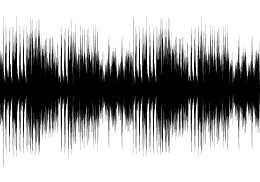
The Official Master’s degree in Telecommunication Engineering of the Universitat de València enables the students to perform the profession of Telecommunications Engineer. The price of a credit for the academic year 2015-2016 is € 23.85, half the price of the non-enabling master’s degree credits (€ 46.2).
28 january 2016
The Official Master’s degree in Telecommunication Engineering of the Universitat de València trains the students from a multidisciplinary perspective around three basic axis: signal, electronics and telematics. It is taught at the School of Engineering (ETSE) and is coordinated by Dr. J. Javier Samper Zapater, professor and researcher since 1996 at the Robotics Institute of the Universitat de València.
It is the first Master’s degree in Telecommunication Engineering of Valencia with professional attributions, since it enables the students to perform the profession of Telecommunications Engineers (it substitutes the previous engineering degree that lasted 5 years).
Among the main characteristics of the Master’s degree we highlight the following:
- Prepares the student to work as a Telecommunication Engineer with all the recognised attributions by the current legislation;
- The price of a credit for the academic year 2015-2016 is € 23.85, half the price of the non-enabling master’s degree credits (€ 46.2). In total, the price of the Master’s degree is € 2 146.5;
- 90 ECTS distributed in one and a half academic years: 60 credits for the first year and 30 credits for the first semester of the second year;
- It allows to complete the technic training of the graduated students within the area of Telecommunication Engineering and related degrees, at the same time they are orientated to the technological management of Telecommunication projects;
- Bilingual master’s degree. The employed languages are Spanish and English;
- The degree gives direct access to the Doctoral Studies Programmes of Information Technologies, Communications and Computational Mathematics, and Electronic Engineering;
- With the enrolment, the student becomes pre-collegiate in the Colegio Oficial de Ingenieros de Telecomunicación of the Valencian Community (COITCV). This organisations provides information about jobs, training, discounts and aids to the practice of the profession;
- It is its fifth edition.
Image source: wikimedia.org
Master’s Degree entry degrees:
The studies that enable the student to access the Official Master’s degree in Telecommunications Engineering are:
- Communications Engineering,
- Electronics Engineering,
- Degrees that entitle the student to perform the profession of Technic Engineer of Telecommunications:
- Degree in Electronic Engineering of Telecommunications,
- Degree in Telematics Engineering,
- Technical Engineering of Telecommunications (in any speciality of the previous student plans),
- Graduates enabled to practice the profession of Industrial Technical Engineer that studied all the technology subjects of Industrial Electronics,
- Students holding a degree or a former Spanish undergraduate degree, engineers, and graduates in a master’s degree with training in information technologies and communications. The former Spanish undergraduate degree and the degree in Physics also give access to the Master’s degree.
Regarding the degrees that entitle the student to perform the profession of Technic Engineer of Telecommunications, the Master’s degree directive body offers flexibility in those cases where the student is about to finish the degree.
For the last three cases, the Master’s degree directive body will determine the additional training the student should take. Those additional subjects could have a maximum workload of 30 ECTS and will be determined according to the profile and curriculum of the candidate.
Working present and future
The telecommunications sector has become nowadays a crosscutting activity, since it is present in almost every production areas: security, banking, defence, health, etc. The question is: is there any field of activity that does not depend on technologies of information and communications (TIC)?
Regarding the employability in the sector, the main national and international organisms provide the following data:
- The Occupations Observatory of the Public Service of State Employment (SEPE) points out that 49% of the employees have an open-ended contract and 97% of the employees works full-time.
- The EU points to the creation of almost 900 000 technological employees for 2020.
- The last report of the Colegio Oficial de Ingenieros de Telecomunicación (COIT) highlights that 88.3% of the graduates is currently working.
- The same document points out that the average annual salary of an engineer is between € 20 000 and € 50 000.











